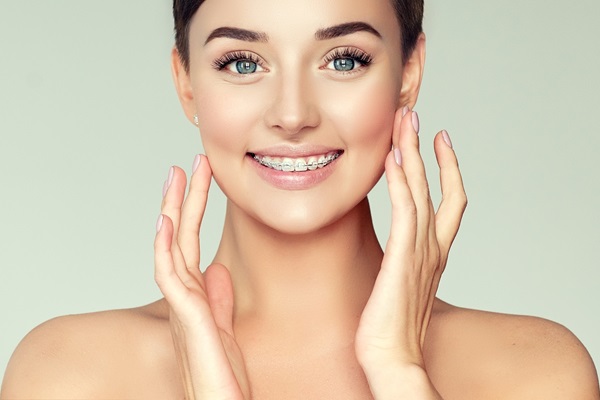The Link Between Sleep Apnea and Oral Health

Sleep disorders such as insomnia and snoring are associated with a sleep problem called sleep apnea. Sleep apnea can cause oral health issues and vice versa. In this article, we explored the correlation between sleep apnea and your oral health.
What is sleep apnea?
According to the American Academy of Sleep Medicine, sleep apnea is a common sleep issue affecting roughly 25 million Americans. Recurrent breathing interruptions indicate sleep apnea during sleep. Obstructive sleep apnea, which is the most common type, occurs when the soft tissues of the airway collapse, usually due to a large tongue, obesity, and other risk factors. Apnea cuts off the oxygen supply to the lungs.
Due to the disruptive effects of sleep apnea on the sleep cycle, it causes daytime weakness, fatigue, and poor mental performance and has lasting adverse effects on health. Untreated sleep apnea can be life-threatening because it leads to an oxygen drop, high blood pressure, and heart-related issues.
The connection to oral health
Good, quality sleep is vital for general wellbeing, combating bad breath, mouth ulcers, and periodontal disease. Oral issues connected with sleep apnea include TMJ disorder, bruxism and mouth breathing.
TMJ
Temporomandibular joint (TMJ) disorders and sleep apnea are related. The TMJ links the upper jaw to the lower jaw. Everyone has two TMJs, one on either side of the face. TMJ disorder could cause jaw pain, locked jaw, pain in the head, neck, and shoulders, and issues with chewing.
A 2013 study reported in the Journal of Dental Research discovered that people who are at a higher risk of sleep apnea were also three times more susceptible to suffering from TMJ disorder. The study also found that patients who showed signs of sleep apnea had about a 73 percent higher risk of having TMJ issues, irrespective of their race, age, weight or smoking habits.
Bruxism
Bruxism is the term for teeth grinding or jaw clenching. Although this habit can occur at any time, people usually engage in the practice subconsciously while sleeping. Bruxism has adverse effects on sleep and may cause you to wake up feeling tired, with headaches and jaw pain. Research published by the Journal of Oral and Facial Pain and Headache stated that bruxism affects up to 31 percent of adults and approximately a quarter of them may suffer from sleep apnea.
Bruxism is categorized under sleep-related problems because it results in involuntary and uncontrolled jaw movement while sleeping. Patients may not be aware of the disorder, but the dentist will detect the signs during a dental checkup.
Mouth breathing
Sleep apnea may force the person to breathe through their mouth. This causes dry mouth, which contributes to tooth decay, plaque, mouth sores, and gum disease. Based on research published in the Journal of the Indian Society of Periodontology, periodontal disease affects 62.3 percent of sleep apnea patients.
Learn more today
Sleep disorders such as sleep apnea can affect general wellbeing negatively. If you are worried that you have sleep apnea, book a consultation with the general dentist to ascertain the cause of your sleeping issues. The dental expert will discuss various treatment options available to help you sleep better.
Request an appointment here: https://brimhalldentalgroup.com or call Brimhall Dental Group at (661) 249-1122 for an appointment in our Bakersfield office.
Check out what others are saying about our services on Yelp: Read our Yelp reviews.
Recent Posts
Clear braces have become a popular choice for individuals seeking to straighten their teeth while maintaining a discreet appearance. Both adults and teens now have access to innovative orthodontic treatments that focus on comfort, aesthetics, and effectiveness. If you are considering clear braces for yourself or your child, it is essential to understand how these…
False teeth, or dentures, are the traditional option for replacing any number of missing teeth for many reasons. They are easy to use and affordable and can also be custom-made for each patient. Discover the many benefits of custom dentures below.Since dentures replace missing teeth, they make it much easier to bite off and chew…
Dentures are a popular teeth replacement solution that can improve the function and appearance of your smile. They are designed to look like natural teeth and consist of different materials, such as acrylic and metal. Whether you are new to dentures or have been wearing them for years, it is important to properly care for…
When sudden dental pain occurs, an emergency dentist can provide critical relief and timely treatment. A toothache often appears unexpectedly, disrupting daily activities or restful sleep at night, signaling that you need urgent dental care. Understanding what steps to take when this type of pain occurs can help prevent further complications to your teeth and…


